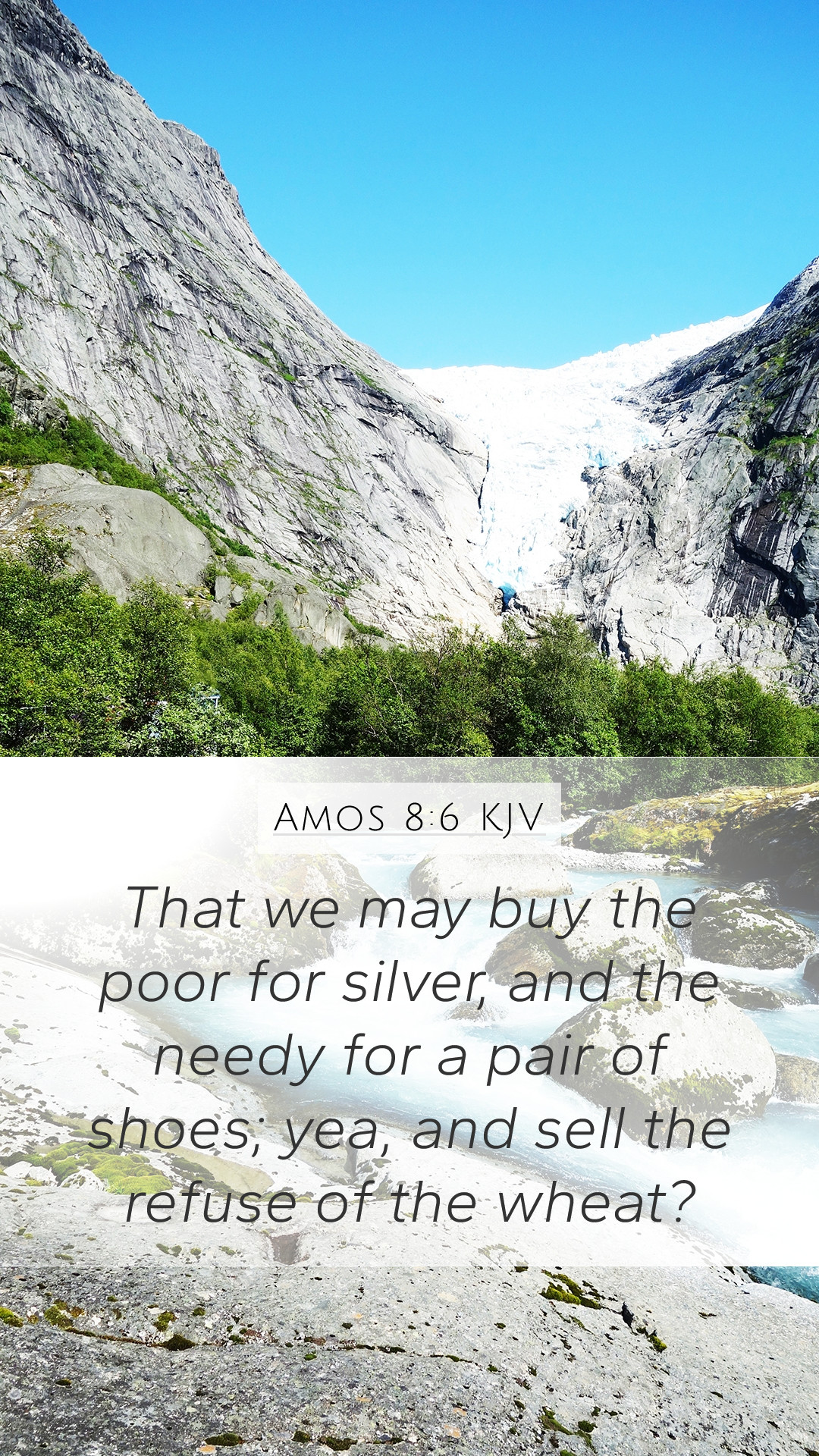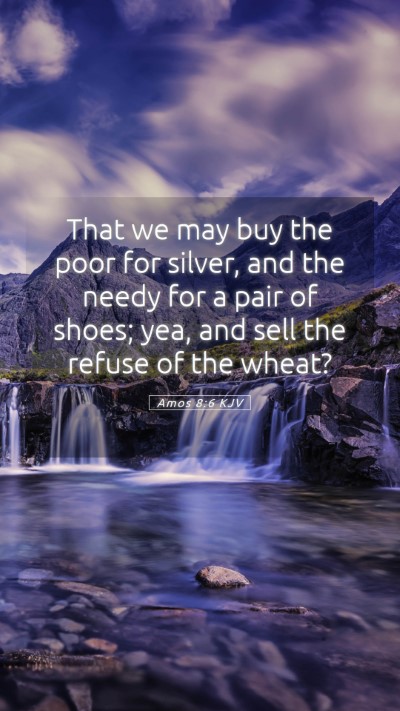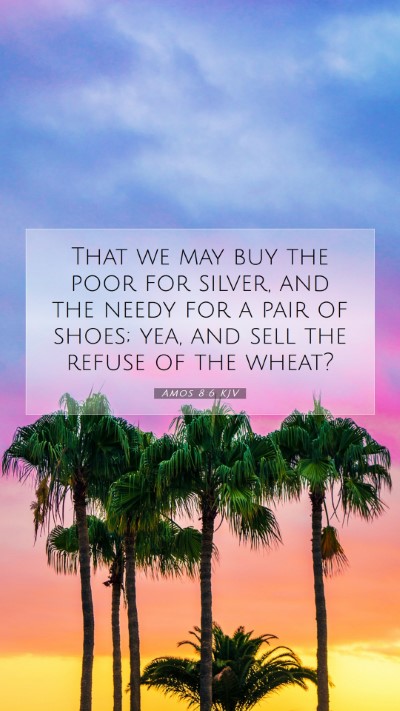Old Testament
Genesis Exodus Leviticus Numbers Deuteronomy Joshua Judges Ruth 1 Samuel 2 Samuel 1 Kings 2 Kings 1 Chronicles 2 Chronicles Ezra Nehemiah Esther Job Psalms Proverbs Ecclesiastes Song of Solomon Isaiah Jeremiah Lamentations Ezekiel Daniel Hosea Joel Amos Obadiah Jonah Micah Nahum Habakkuk Zephaniah Haggai Zechariah MalachiAmos 8:6 Meaning
What is the meaning of Amos 8:6?
That we may buy the poor for silver, and the needy for a pair of shoes; yea, and sell the refuse of the wheat?
Amos 8:6 Bible Verse Meaning
Understanding Amos 8:6
Amos 8:6 states, "That we may buy the poor for silver, and the needy for a pair of shoes; and sell the refuse of the wheat?" In this verse, the prophet Amos critiques rampant social injustices and the exploitation of the poor by the wealthy in Israelite society.
Bible Verse Meanings
This verse reflects a critical commentary on the moral decay of the people, illustrating how the desire for profit led to the dehumanization of those in need. Public domain commentaries provide a deeper insight into this scripture, regarding it as a depiction of a corrupt societal system.
Bible Verse Interpretations
-
Matthew Henry's Commentary:
Henry emphasizes the greed and cold-heartedness of the wealthy who prioritize material wealth over compassion. He explains that the phrase reflects not merely economic transactions but highlights systemic corruption where the poor are treated as commodities.
-
Albert Barnes' Notes:
Barnes discusses the significance of the imagery used, noting how it points to a depravity in society that strips individuals of their dignity. He draws attention to the mockery embedded in purchasing the poor for silver.
-
Adam Clarke's Commentary:
Clarke focuses on the historical context of slavery and poverty during Amos's time, stating that this verse was a stark warning against such exploitation. He provides examples of how this exploitation contrasts with the moral teachings of the Torah.
Scripture Analysis
The analysis of Amos 8:6 reveals a portrayal of a society where economic greed overshadows justice. This verse serves as a prophetic critique aimed at correcting the injustice that prevailed in Israel. It raises essential questions about the ethical implications of wealth acquisition.
Biblical Exegesis
Exegesis of this passage involves exploring the deeper meanings behind the imagery of buying and selling people as if they were commodities. This representation indicates a complete reversal of the biblical principle of loving one's neighbor, instead embodying a brutal indifference to human suffering.
Bible Study Insights
-
Contextual Relevance:
Understanding the context of Amos's ministry during a time of economic prosperity matched by social decay is critical for a holistic grasp of this verse.
-
Application to Daily Life:
Contemporary readers are challenged to reflect on societal values surrounding wealth and compassion, encouraging a call to action against injustices faced by marginalized communities.
Cross References
- Proverbs 22:16: "He who oppresses the poor to increase his wealth and he who gives gifts to the rich—both come to poverty."
- Micah 6:10-12: These verses illustrate similar themes of injustice in the economy.
- James 2:6-7: This New Testament passage cautions against the favoritism shown to the rich over the poor.
Conclusion
In summary, Amos 8:6 serves as a powerful reminder of the dangers of materialism and exploitation within society. The insights drawn from notable commentaries open up avenues for deeper reflection on both historical and contemporary practices of injustice. As you engage with this scripture, consider how it applies to your life and community, striving towards equity and compassion.


